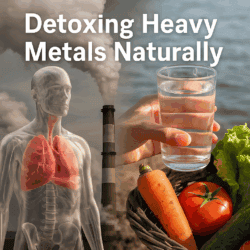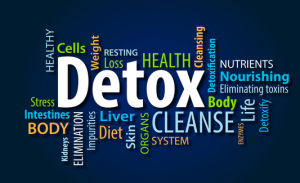Heavy Metals in Coffee
Is Your Coffee Contaminated?
Millions consume coffee daily for its stimulating effects and rich flavor. However, recent studies have revealed a hidden danger lurking in our coffee cups: contamination with heavy metals. This blog explores the types of heavy metals present in coffee, the differences between organic and non-organic coffee in terms of contamination, and the potential health effects of these toxic metals.Heavy Metals Found in Coffee
Several heavy metals can contaminate coffee, with the most concerning being cadmium, lead, and arsenic. Here’s a brief overview of each:- Cadmium (Cd):
- Source: Cadmium can enter the coffee plant from contaminated soil and water.
- Health Risks: Chronic exposure to cadmium can cause kidney damage and bone demineralisation and has been linked to cancer.
- Lead (Pb):
- Source: Lead contamination can occur from polluted soil, water, and industrial emissions.
- Health Risks: Lead exposure can result in neurological damage, cardiovascular issues, and reproductive health problems.
- Arsenic (As):
- Source: Arsenic can enter the coffee plant from contaminated soil and water, often due to the use of pesticides and industrial pollution.
- Health Risks: Chronic exposure to arsenic can lead to skin lesions, developmental effects, cardiovascular disease, and cancer.
Comparing Organic and Non-Organic Coffee
Non-Organic Coffee:- Use of Pesticides and Fertilizers: Non-organic coffee is often grown using synthetic pesticides and fertilizers, which can be a source of heavy metal contamination. These chemicals can leach into the soil and water, leading to coffee plants’ absorption of heavy metals.
- Industrial Pollution: Non-organic coffee farms are more likely to be located near industrial areas, increasing the risk of contamination from industrial pollutants.
- No Synthetic Pesticides or Fertilizers: Organic coffee is grown without synthetic pesticides and fertilizers, significantly reducing the risk of heavy metal contamination from these sources. Organic farming practices prioritize natural fertilizers and pest control methods.
- Stricter Soil Management: Organic farms often use sustainable soil management practices that reduce the likelihood of heavy metal accumulation. These practices include crop rotation, composting, and using organic matter to maintain soil health.
- Environmental Impact: Organic farming is generally better for the environment, reducing soil and water pollution and promoting biodiversity.
Health Effects of Heavy Metals in Coffee
- Cadmium Exposure:
- Kidney Damage: Cadmium can accumulate in the kidneys, leading to chronic kidney disease and dysfunction.
- Bone Health: Long-term exposure to cadmium can cause bone demineralization, increasing the risk of fractures and osteoporosis.
- Cancer: Cadmium is classified as a carcinogen, with links to lung, prostate, and kidney cancers.
- Lead Exposure:
- Neurological Damage: Lead exposure can impair cognitive function, cause developmental delays in children, and lead to neurological disorders in adults.
- Cardiovascular Issues: Lead can increase blood pressure and the risk of cardiovascular diseases.
- Reproductive Health: Lead exposure can affect reproductive health, leading to infertility and complications during pregnancy.
- Arsenic Exposure:
- Skin Lesions: Chronic exposure to arsenic can cause skin lesions and hyperpigmentation.
- Developmental Effects: Arsenic can affect fetal development, leading to birth defects and developmental delays.
- Cardiovascular Disease: Long-term exposure to arsenic is linked to an increased risk of cardiovascular diseases.
- Cancer: Arsenic is a known carcinogen, with strong links to skin, lung, bladder, and kidney cancers.
How to Choose Safer Coffee
- Look for Certified Organic Labels: When shopping for coffee, consider certifications such as USDA Organic, which ensure the coffee is grown without synthetic pesticides and fertilizers. Certifications like Fair Trade and Rainforest Alliance promote sustainable and environmentally friendly farming practices.
- Research Brands: Some coffee brands prioritize transparency about their sourcing and farming practices. Look for brands that provide detailed information about where and how their coffee is grown.
- Support Small and Local Roasters: Smaller, local coffee roasters often have closer relationships with their coffee farmers and are more likely to prioritize quality and sustainable practices.
- Consider Single-Origin Coffee: Single-origin coffee comes from a specific location, allowing for better traceability and quality control than blends from multiple regions.
- Check for Third-Party Testing: Some coffee brands conduct third-party testing for contaminants, including heavy metals. This information may be available on the company’s website or product packaging.
Tips for Reducing Heavy Metal Exposure
- Diversify Your Diet: Consuming various foods can help minimize the risk of heavy metal accumulation from any single source.
- Filter Your Water: Using a water filter can help reduce exposure to heavy metals like lead and arsenic, especially if you live in an area with known water contamination issues.
- Maintain a Healthy Diet: A diet rich in vitamins and minerals, particularly calcium, iron, and zinc, can help reduce the body’s absorption of heavy metals.
- Regular Detoxification: Consider incorporating natural detoxifying foods and supplements, such as cilantro, chlorella, and garlic, which have properties that may help chelate and remove heavy metals from the body.
- Add a Heavy Metal Chelator to your Coffee – try using a natural heavy metal chelator such as HMD in your coffee—45 drops, three times daily, will help eliminate heavy metals from the body.









